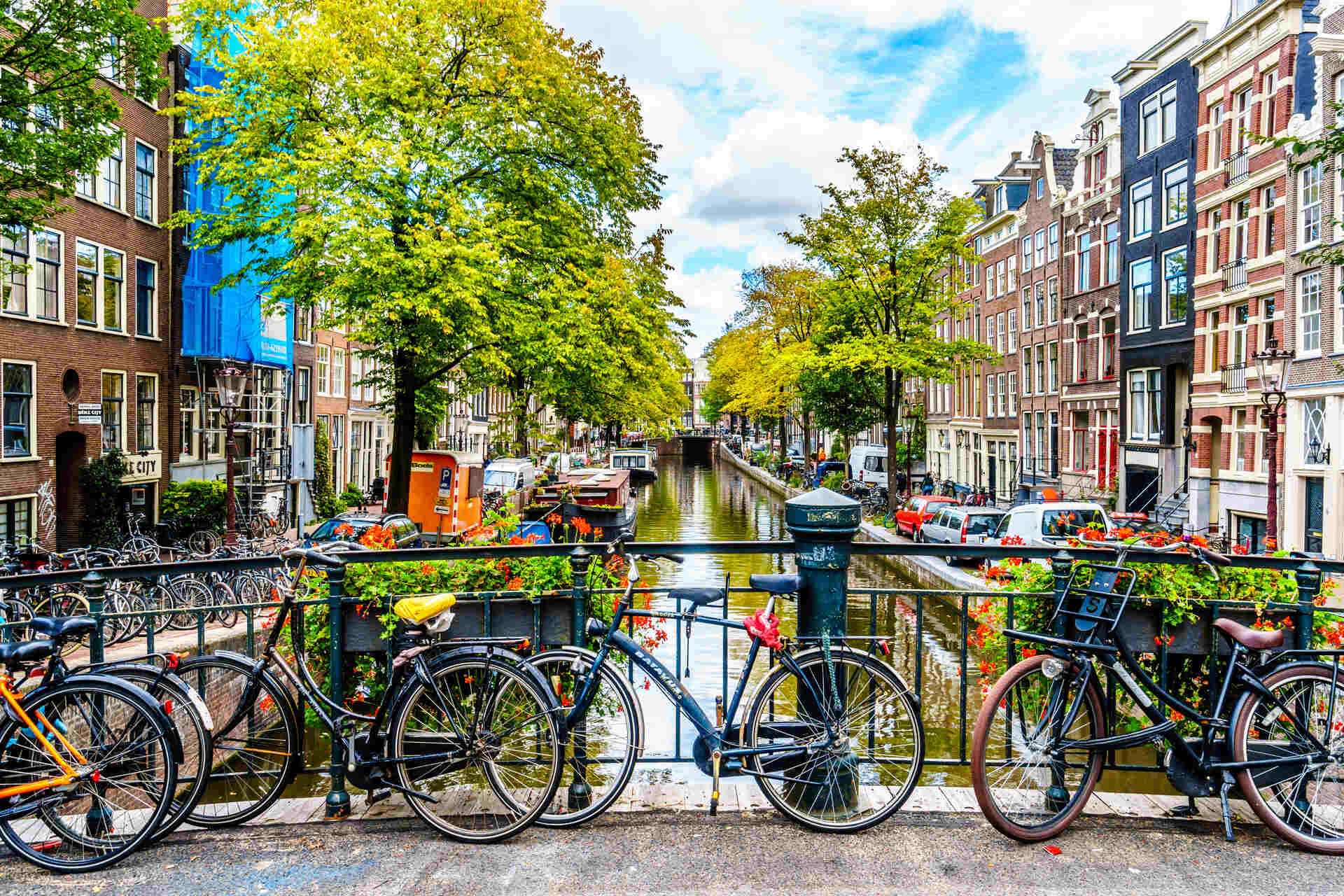

There are almost 200 countries in the world. Each one has different laws, cultures, customs, and distinctive ways of life. Many people who move abroad to an unfamiliar place experience a phenomenon commonly known as culture shock. It’s completely understandable that most people feel uncertainty, confusing emotions, and even anxiety after being introduced to a new environment and surroundings.
Moving across the world brings numerous positive things, like meeting the people, cultures, and habits of other nations. However, when it comes to adjusting to a new country, it can be a bit difficult. So while living overseas is a generally positive experience for most people, it’s important to understand what culture shock is and how to deal with unfamiliar customs and surroundings.
What Is Culture Shock and How to Recognize It After Moving Internationally
This is an expression referring to certain feelings a person can experience when relocating to another place. For example, if you’re looking for a place to retire in Europe, it’s not just accommodation and the cost of living you need to consider. What will you eat there, what’s the weather like, is the local food something you can get used to?
These and other questions could lead you to a negative state of mind if you don’t get them answered as soon as possible. This goes for students, those who are moving to another place for love, and those who are looking for one of the friendliest countries in the world to live in.
Culture shock can be defined as emotional disorientation. Being away from home, family, and friends can put us in a negative mood. Having the possibility to know another nation, language, customs, and everyday life means mixing exhilarating and overwhelming feelings.
It Might Not Be a Global Problem, But Almost Every Expat Is Impacted by It
Before you start thinking about what to pack when relocating abroad, you should consider some facts about your life in a completely different place. Also, how much time every person will need to adjust to the unknown surroundings is entirely individual. It can depend on many factors, but one of the most important things to remember is that it’s completely normal to need some time to get used to the change. Even experienced travelers, exchange students, and expats can get anxious when relocating from a familiar to an unfamiliar way of life.
The Sooner You Understand It, the More It Will Help You in This Whole Process
Once you find one of the best places to live internationally, consider all the positive and negative sides of this relocation. If the two locations are completely different, then count on an adjustment period almost everyone has to go through. Also, many of us will even experience the same feeling when relocating from one place to another within the same country.
On the other hand, experiencing culture shock can have many good sides. It will be a great stimulant once you understand exactly what’s going on and learn that there’s a light at the end of the tunnel. Don’t let this experience become a bad memory just because you didn’t know how to handle that first period after the move.

Common Elements That Are Responsible for Culture Shock
When you find one of the best cities to live in Europe, you can feel relieved and start planning the move. However, moving abroad is more than just making a to-do list and figuring out how to pack fragile items and prevent them from breaking. It’s also figuring out what elements are the most common ones that cause anxiety or mixed feelings in the surrounding so unlike your home. So here’s what you should explore about your new home:
- Climate – the weather can make the whole transition a bit harder if you’re relocating from a hot and dry region to a perpetually wet climate, and vice versa. Settling down in an environment that you’re not used to can be a challenge.
- Food – it’s best to stick with familiar foods in the first period after the move. A lot of vegetables and fruits will provide you with a healthy diet that will allow you to gradually try all those traditional dishes of the place you now live in.
- Language – one of the most frustrating things when it comes to moving abroad is learning a new language and breaking the language barrier.
- Values – other cultures may have completely different views of the world from yours.
- Customs – many foreign customs can seem to you as quirks. So, if you’re living in Europe as an American, accept the welcoming attitude. For example, for Americans, it’s normal to just shake hands with friends. But if you move to Argentina, get used to one kiss on the cheek, too.
- Etiquette and behavior – how we interact and treat each other mostly depends on the unspoken cultural rules.

Get to Know the Symptoms of Culture Shock
Once you arrive at your new home and you’re still jet-lagged, all those cultural differences can seem blown out of proportion and become a barrier hard to get over. Remember, it’s completely normal to have confusing feelings in similar situations.
We often think that having a hard time adjusting to cultural differences is purely a social phenomenon. But your entire system will be overwhelmed and cause some real physiological symptoms. Check them out:
- Low mood and mood swings,
- Anxiety,
- Depression,
- Frustration,
- Headaches and stomachaches,
- Inability to focus,
- Homesickness,
- Feeling out of place and lost.
After finding one of the best places to live with your family and gathering all the needed documents to travel, you probably already feel overwhelmed. One way to keep you going with the whole relocation process is to remember all the reasons for the move and the benefits it will bring you. Although relocation stress can’t be avoided in most cases, remember that the less stress you have, the more energy you’ll accumulate for the upcoming period after the move. Get ready to move efficiently with some great tips and hacks on de-stressing.
Learn the Stages of Culture Shock Before the Big Move
There are four stages most of us go through when dealing with cultural adjustment. It’s understandable because being in contact with unknown surroundings and away from your loved ones is hard. And getting through a challenging period, every person manifests different behavior. Here are four phases majority of folks experience in this situation:
- The honeymoon stage,
- The frustration stage,
- The adaptation stage,
- The acceptance stage.
In the following text, we’ll explain each stage and what you should do if you believe you’re going through it. However, keep in mind that a single event doesn’t cause these stages. Usually, it’s a combination of doing things in a different way, reevaluating your actions, and feeling like you’re not part of the crew.
The Honeymoon and Frustration Stage Will Be Just the Beginning
The first stage is called honeymoon because you’re excited and thrilled about the unknown environment. It seems like an adventure you have to discover. However, as enjoyable as it is, the honeymoon phase will end eventually, even though many of us would like it to last a bit longer.
The frustration stage usually comes when the honeymoon ends. Most of us become more and more irritated after the excitement about this adventure is over. Fatigue and anxiety can gradually accumulate due to constantly not understanding the local customs, attitudes, and language. In this stage, everything is challenging, and the whole situation becomes just an exhausting process you wait to end.
The Final Stages – Adjustment With Acceptance
The adaptation stage will come gradually, and you’ll become more comfortable with the surroundings and everything in them. As you spend weeks adapting to the customs, learning the language, and getting to know the completely different local mindset, the unhappy feelings will gradually go away. You’ll be more familiar with and able to interpret all those situations you couldn’t before (although some of those situations won’t be as understandable just yet).
The recovery or acceptance stage is where we realize we’re actually enjoying the place. We begin to experience all the benefits of the surroundings, and the overall satisfaction about relocating there becomes more pronounced every day. You will be able to establish balanced daily routines and a healthy relationship with the environment.

What Can You Do After the Move to Get Over the Rough Landing
After you learn how to move overseas, keep in mind that you’ll need some help to get through the challenging period that comes afterward. If the new setting puts you out of place and makes you uncomfortable, then you need to do something about it.
Keeping in touch with family and friends is certainly something that will give you enough strength to stay in an unknown place. Another thing you should do if relocating to an area where most people speak a foreign language is to get in contact with the locals. It will be overwhelming at first, but once you catch up with all those phrases and slang, everything will be a piece of cake from that point on.
Use Some Strategies That Will Help You Cope
Preparing your mindset is the basics when it comes to adapting to an unknown environment. You’ll probably be excited about the step you’re taking, and that’s good. Excitement will help you in the first period, but you’ll also need patience (mostly for yourself – you’re going to change, and you’ll blossom into a better version of yourself) and confidence. This will set a basis for you to excel on so many levels.
To avoid feeling awkward, it’s best to make local friends and hang out with them. Not only will this help with a quicker adaptation, but you’ll also learn little things more quickly – like local informal greetings, jokes, and the language, too.
Can Culture Shock Affect Your Growth as a Person?
Every change is challenging, and every beginning is hard. This doesn’t mean you should miss all the opportunities there are in the world. The good news is that all these unpleasant feelings can be turned into positive ones.
Not only will you learn to trust your gut and be more open to future adventures, but you’ll have contact with some amazing people that might become your friends. And despite all differences between cultures, you’ll learn a valuable lesson that we all are, in fact, similar and interconnected.

A Reliable International Moving Company Will Help You Through a Hard Time
Imagine having a disastrous experience with all the move preparations and arriving at the future place frustrated and exhausted. To avoid that, hire a reliable international moving company with all the services needed. From a packing service and included storage facility for your belongings to safe overseas vehicle shipping if you want to have your car as a companion in the new adventure.







